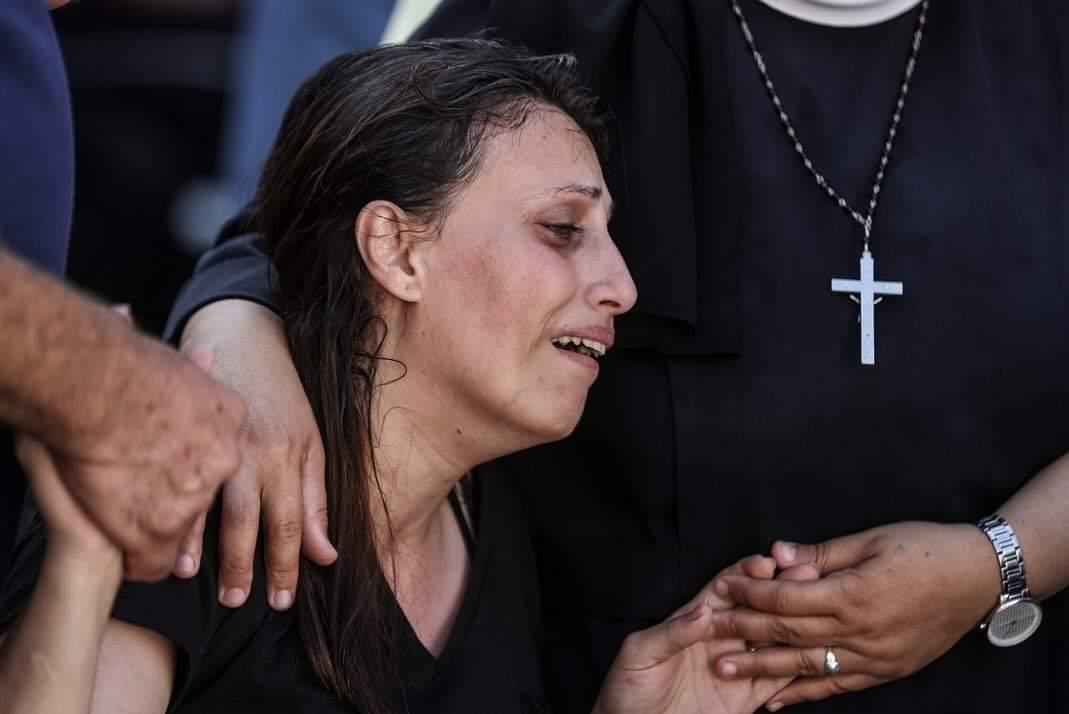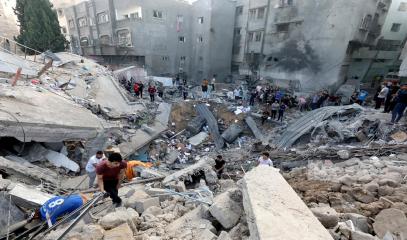Archbishop Bizzeti: In a 'destabilised' Middle East, Turks are close to Jews and Palestinians
For the Vicar of Anatolia, it is necessary to respond to the serious issues underlying the conflict, starting with a Palestinian state. The great powers ought to “step aside" in favour of a local process, which will be long, to bring peace to the region. Prayer and fasting can “extinguish the “mounting hatred.”
Iskenderun (AsiaNews) - In this tense phase of the war in Gaza, in Turkey there is a widespread feeling of "closeness to our Jewish and Palestinian brothers" and a renewed call for “peace and prayer", as well as an "invocation" to the parties involved "not to resolve a terrible situation by shedding more blood,” said Bishop Paolo Bizzeti.
The prelate, who is the Vicar of Anatolia, looks with concern at the winds of war that are blowing again over the Holy Land, triggered by Hamas’s terror attack on 7 October and Israel’s massive retaliatory strikes in Gaza.
So far, Israel’s offensive has made no distinction between fighters and civilians, nor between military targets and mosques, churches and hospitals; this is feeding an escalation that could set the entire region ablaze. For Bishop Bizzeti, “The risk is real," Bishop Bizzeti, "because there are unresolved situations.”
"First of all, it is necessary to strongly state that blood against blood has never led to peace. Here (in Turkey) the remote causes that led to such terrorism are very much understood, and must find a solution. It is impossible for a people like the Palestinians not to have their own independence, their own reality, their own freedom to express themselves.
"You can't think of solving problems by ignoring their causes. This is the widely shared feeling, even among Christians, who without necessarily taking sides are aware that it is necessary to confront what is behind all this deep down
Turkish public opinion condemns both Hamas’s attack against Israel, with the massacre and abduction of civilians, and Israel’s military response in the Strip, which has hit women, the elderly, and children more than the fighters and terrorists.
"Here it is hard to understand why churches, mosques, hospitals are struck: this is not justice. No act of terrorism can justify reactions that are equally violent."
At the diplomatic level, Turkey is trying to work out ways to loosen the grip on Gaza and facilitate the entry of aid, as well as open up possible channels of dialogue between the parties.
This shows how Turkey and its president, Recep Tayyip Erdogan, are trying to act as a mediator in the region and elsewhere, not only in Gaza, but also in Russia, Ukraine and Iran.
Last year, “the Turkish government re-established full relations with Israel, so there is no a priori preclusion or a desire for non-recognition. The government rightly points out that Hamas cannot be identified with all the Palestinian people. Among public opinion, there is a strong stance against this [Israel’s] reaction, which pours more fuel on the fire.”
Turkey “has placed itself in a position of not taking sides against one or the other, and this approach seems to me very wise because it avoids the logic of suppressing one of the two parties involved".
There is also a confessional element to consider, particularly in a country like Turkey where Islam is the dominant religion and has shaped its direction in the past few years.
Turkish Muslims are closely following the conflict, which is political in nature, even though some try to turn into a religious war, which “does not exist”. Nevertheless, “there are real risks that things will get out of hand; the causes are clear: It is necessary, first of all, to meet the demand of a [Palestinian] people to rule itself.”
“In order to prevent emotional or uncontrolled reactions and avoid further divisions, it is important that both sides commit to a ceasefire,”
This said, there is a risk that the conflict will widen due to problems that have been put "on the back burner for some time: Iraq, Iran, relations with the United States and Europe that are not clear and linear. It is also necessary to consider the situation that arose since the two Gulf Wars, which might explode.
“The Middle East has been destabilised for decades, but the time has come for the great powers to step aside and allow its peoples real autonomy.” The process “will be complicated, long and hard, for it took centuries even in Europe to achieve a more peaceful coexistence.
The peoples of the Middle East “have to make their own way; external interference does not help. All the more so when weapons, which have never served the cause of peace, are sent from abroad.”
In the past few weeks, thousands of Jews have taken refuge in Turkey to escape the violence of the conflict, while in Gaza there is great fear of a massive exodus that could trigger a new migration emergency that risks aggravating the humanitarian tragedy.
In the face of a potentially wider war and more bloodshed, it is even more important to follow the indications of Pope Francis, Bishop Bizzeti says, because they are "wise indications: to extinguish the mounting hatred we need prayer and fasting, which is why every parish is undertaking [various] services and initiatives.”
02/02/2024 19:29
23/06/2023 18:56








.png)










